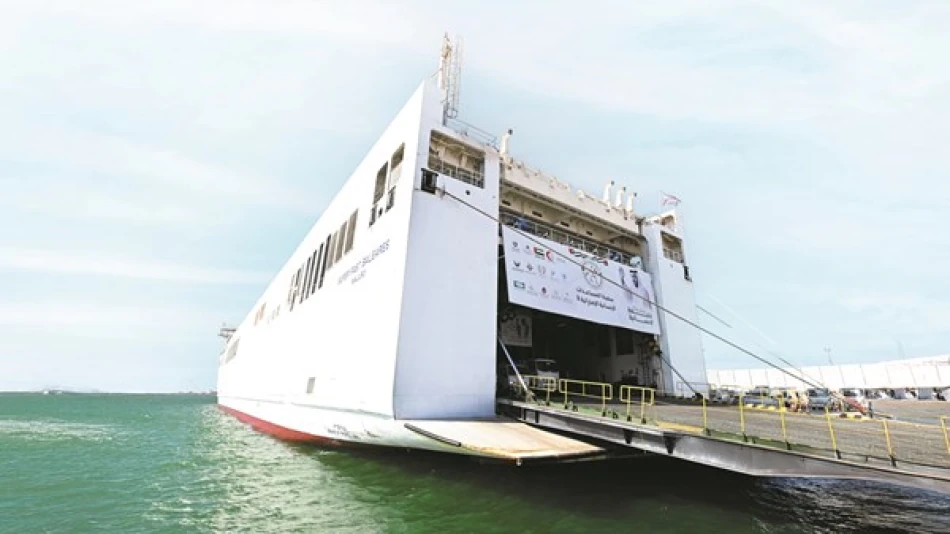
UAE's Unwavering Humanitarian Approach and Boundless Initiatives Empower Global Impact
UAE Emerges as Global Humanitarian Superpower, Religious Leaders Affirm
As the world marks International Day of Charity on September 5th, the United Arab Emirates stands out as a dominant force in global humanitarian aid, with religious leaders from multiple faiths praising the nation's systematic approach to charity that transcends religious and ethnic boundaries. The UAE's model—rooted in institutional frameworks and strategic giving—has positioned it as the world's top donor relative to national income, fundamentally reshaping how modern nations approach international aid.
A Strategic Vision Born from Founding Principles
The UAE's humanitarian leadership didn't emerge by accident. Since the nation's founding in 1971, charity has been embedded as a core pillar of both domestic and foreign policy, rather than treated as an afterthought. This institutional approach, initiated by the late Sheikh Zayed bin Sultan Al Nahyan, established charitable work as an integral part of the country's national identity.
Father Bishoy Fakhry, pastor of the Anba Antonio Cathedral in Abu Dhabi, emphasized that charitable work was never viewed as a secondary option, but as an authentic part of the UAE's national identity and civilizational message. This foundational commitment has created a sustainable model that other nations increasingly study and attempt to replicate.
Institutional Infrastructure Sets UAE Apart
What distinguishes the UAE from traditional donor countries is its sophisticated institutional framework. The Emirates Red Crescent Authority, Khalifa bin Zayed Foundation for Humanitarian Works, and Mohammed bin Rashid Al Maktoum Global Initiatives represent a professionalized approach to charity that ensures systematic, measurable impact rather than ad-hoc giving.
This institutional model mirrors successful approaches in countries like Norway and Denmark, but with a distinctly Middle Eastern perspective that emphasizes cross-cultural and interfaith cooperation.
By the Numbers: UAE's Unprecedented Giving
According to OECD Development Assistance Committee reports, the UAE has consistently ranked as the world's largest donor relative to national income for consecutive years. This isn't merely about absolute dollar amounts—it represents a fundamental commitment of national resources to global humanitarian causes.
Recent mega-initiatives illustrate the scale: the 100 Million Meals campaign reached millions of beneficiaries across more than 30 countries, while the "Mother's Endowment" allocated AED 1 billion specifically for global education support. The UAE also designated $100 million for humanitarian efforts in Sudan, demonstrating rapid response capabilities during acute crises.
Market and Geopolitical Implications
This humanitarian leadership carries significant soft power dividends. Unlike traditional aid that often comes with political strings attached, the UAE's needs-based approach has built goodwill across diverse regions—from Latin America to Southeast Asia. This strategy enhances the UAE's position as a neutral mediator in regional conflicts and strengthens its role as a global financial hub.
For investors, the UAE's humanitarian reputation reduces political risk and enhances the country's stability as a business destination. The model also creates economic multiplier effects, as humanitarian infrastructure often supports UAE-based logistics, finance, and technology companies.
Religious Unity Behind Secular Success
What makes the UAE model particularly compelling is the unanimous support across religious communities. Sheikh Abu Bakr Ahmed, Mufti of India, praised how UAE's charitable hands continue to wipe away the tears of the needy and distressed across the globe, without discrimination based on religion, race, or language.
This interfaith endorsement is strategically valuable. In an era where humanitarian aid is often viewed through sectarian lenses, the UAE has successfully positioned itself as a universal provider. Archbishop Bartholomew Abu Haider of the Greek Orthodox Church noted that the UAE's efforts align with divine values of mercy and solidarity that transcend religious boundaries.
The Zayed Legacy as Competitive Advantage
The consistent invocation of Sheikh Zayed's vision by religious leaders suggests something deeper than typical diplomatic courtesy. The late founder's philosophy of wealth as a tool for helping the vulnerable has become a sustainable cultural framework that outlasts individual leadership changes—a crucial factor for long-term credibility in humanitarian work.
Global Implications and Future Trajectory
The UAE's approach represents a new model for middle-power influence in an increasingly multipolar world. While traditional powers like the US and EU often face domestic pressure to reduce foreign aid, the UAE has built popular support for international giving by framing it as national identity rather than optional generosity.
This model is particularly relevant as climate change increases global humanitarian needs. The UAE's rapid-response capabilities and established delivery networks position it to play an even larger role in future crisis management.
Surinder Singh Kandari from Dubai's Guru Nanak Darbar Gurudwara captured the broader significance: the UAE's commitment transcends charity to establish a living culture of mercy, solidarity, and shared humanity. In a fragmented world, this represents not just humanitarian success, but a template for how nations can build influence through consistent, principled action rather than military or economic coercion alone.
Most Viewed News

 Layla Al Mansoori
Layla Al Mansoori






